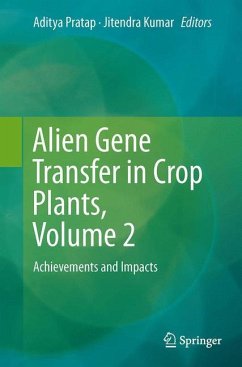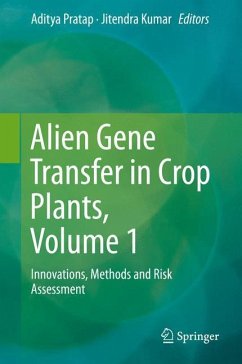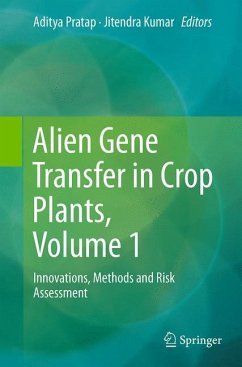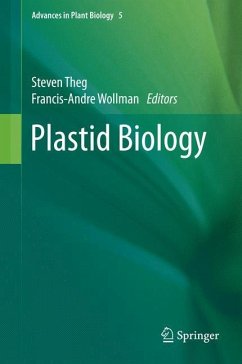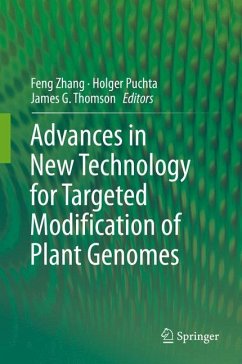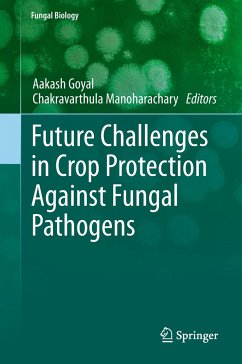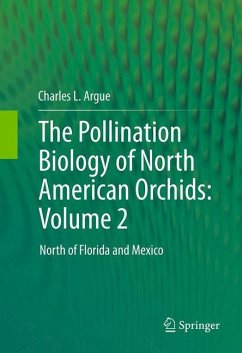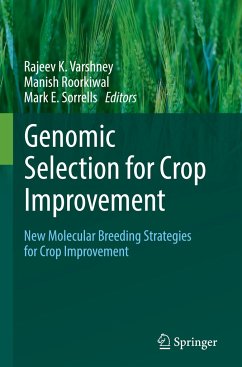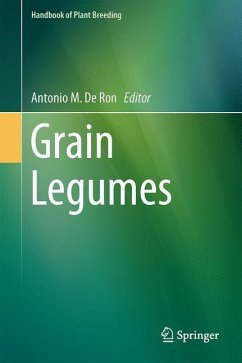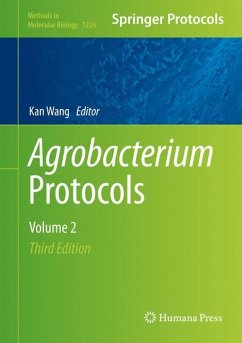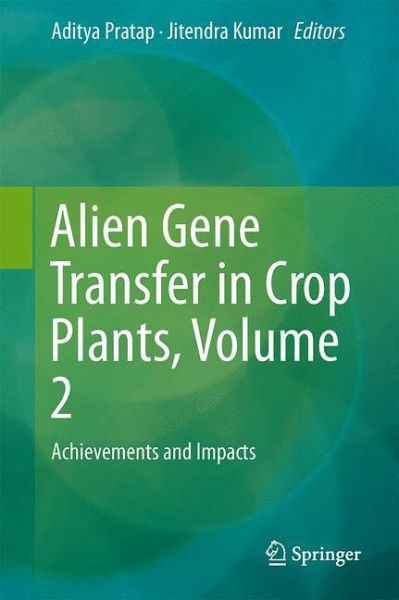
Alien Gene Transfer in Crop Plants, Volume 2
Achievements and Impacts
Herausgegeben: Pratap, Aditya; Kumar, Jitendra

PAYBACK Punkte
57 °P sammeln!
Genetic engineering and biotechnology along with conventional breeding have played an important role in developing superior cultivars by transferring economically important traits from distant, wild and even unrelated species to the cultivated varieties which otherwise could not have been possible with conventional breeding. There is a vast amount of literature pertaining to the genetic improvement of crops over last few decades. However, the wonderful results achieved by crop scientists in food legumes' research and development over the years are scattered in different journals of the World. ...
Genetic engineering and biotechnology along with conventional breeding have played an important role in developing superior cultivars by transferring economically important traits from distant, wild and even unrelated species to the cultivated varieties which otherwise could not have been possible with conventional breeding. There is a vast amount of literature pertaining to the genetic improvement of crops over last few decades. However, the wonderful results achieved by crop scientists in food legumes' research and development over the years are scattered in different journals of the World. The two volumes in the series 'Alien Gene Transfer in Crop Plants' address this issue and offer a comprehensive reference on the developments made in major food crops of the world. These volumes aim at bringing the contributions from globally renowned scientists at one platform in a reader-friendly manner. The second volume entitled, "Alien Gene Transfer in Crop Plants: Achievements and Impact" will deal more with the practical aspects. This volume will cover achievements of alien gene transfer in major food crops of the world and their impact on development of newer genetic variability and additional avenues for selection; development of superior cultivars for increased yield, resistance to biotic and abiotic stresses, improved nutritional and industrial quality; innovation of new techniques and positive as well as negative environmental implications. This volume has been divided into four groups with an aim to cover all major cereals, pulses, oilseeds and other crops (vegetable and horticultural crops) which are of economic importance.






